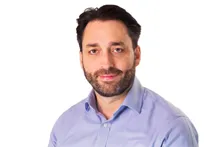Headaches treatment Wokingham, Berkshire
Headaches are one of the most common types of pain a person can experience. People will often take a pain killer to resolve their headache. Pain killers are one of the most bought medications in the world. The original pain killer, aspirin, originates from herbal medicine, the bark of the willow tree.
Causes of headaches
People will often think they have a headache because they haven't drunk enough water and sometimees this is the case. However, more often than not, a headache is not caused by dehydration but actually is caused by stress or tiredness.
Pain is a messenger, the body telling us that it's not in balance and not happy. We tend to shoot the messenger with pain killers rather than listening to the pain and let it show us what's wrong with our lives. Often we need to do less, relax more and rest more. However, our minds don't like to do less or rest, so they force the body to carry on, causing headaches.
Acupuncture for headaches
Acupuncture is very effective as treating headaches.
Acupuncture can help headaches by:
- increasing endorphins and neuropeptide Y levels, which can help to combat negative affective states
- stimulating nerves located in muscles and other tissues, which leads to release of endorphins and other neurohumoral factors, and changes the processing of pain in the brain and spinal cord
- reducing inflammation, by promoting release of vascular and immunomodulatory factors
- increasing local microcirculation, which aids dispersal of swelling
Our headache acupuncturist
Dr (TCM) Attilio D'Alberto BM (Beijing), BSc (Hons) TCM, MBAcC, MATCM, MAAC
 Dr (TCM) Attilio D'Alberto has been treating headaches problems for over 20 years and has great success in treating all types of headaches and migraines.
Dr (TCM) Attilio D'Alberto has been treating headaches problems for over 20 years and has great success in treating all types of headaches and migraines.
Dr (TCM) D'Alberto graduated with a Bachelor of Medicine from Beijing University of Traditional Chinese Medicine (TCM) in China after completing their five year, full time medical degree program.
Schedule AppointmentReferences
Friedman AP et al. Migraine and tension headaches: a clinical study of two thousand cases. Neurology 1954; 4: 773-88.
Headache Classification Subcommittee of the International Headache Society. The International Classification of Headache Disorders: 2nd edition.Cephalalgia 2004; 24: 9-160.
Lance JW et al. Investigations into the mechanism and treatment of chronic headache. Med J Aust 1965; 2: 909-14.
Russell MB et al. Familial occurrence of chronic tension-type headache. Cephalalgia 1999; 19: 207-10.
Steiner TJ et al, 2007. Guidelines for all healthcare professionals in the diagnosis and management of migraine, tension-type, cluster and medication-overuse headache [online]. Hull: British Association for the Study of Headache. Available: http://216.25.88.43/upload/NS_BASH/BASH_guidelines_2007.pdf
Watson DP. Easing the pain: challenges and opportunities in headache management. Br J Gen Pract 2008; 58: 77-8.



















